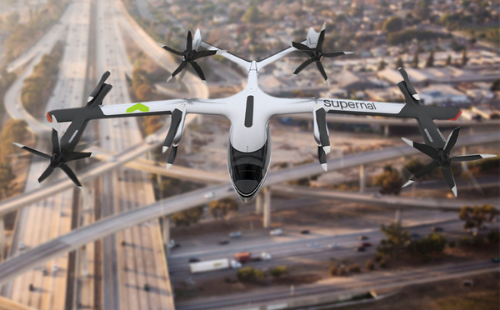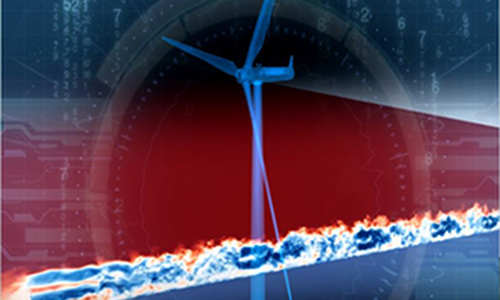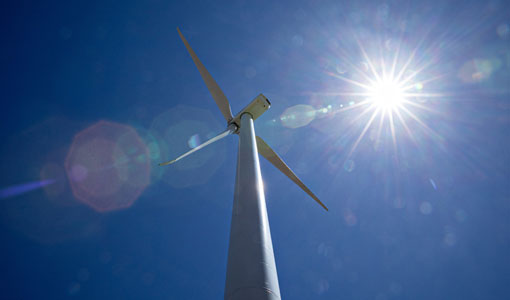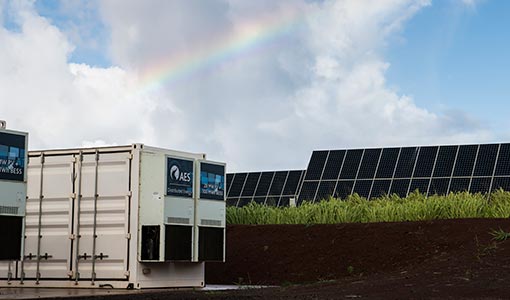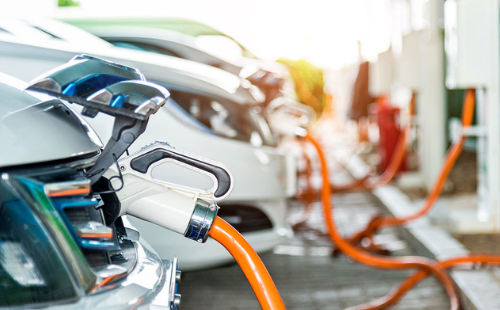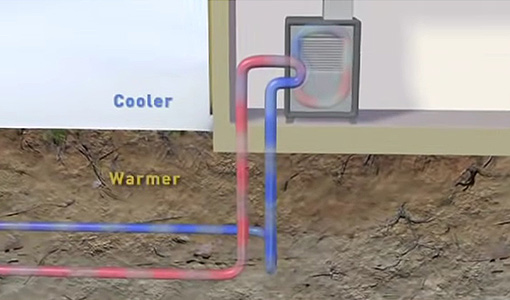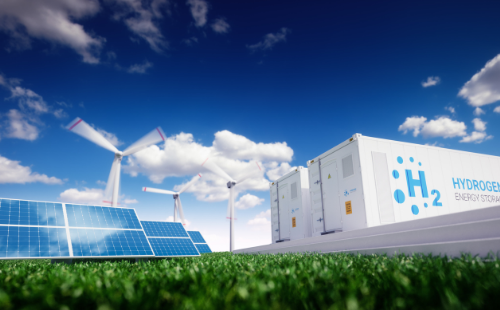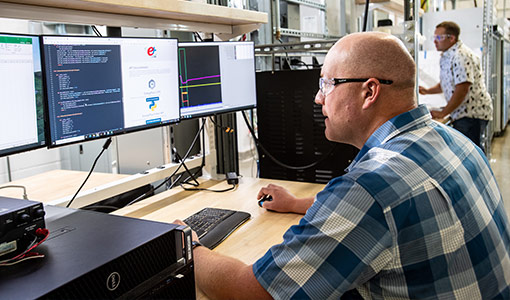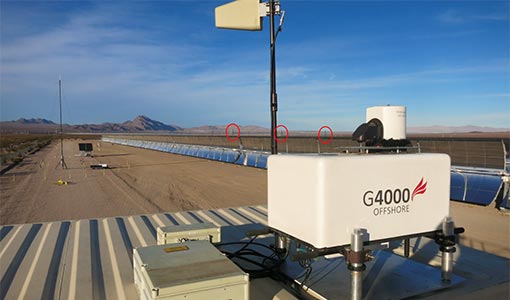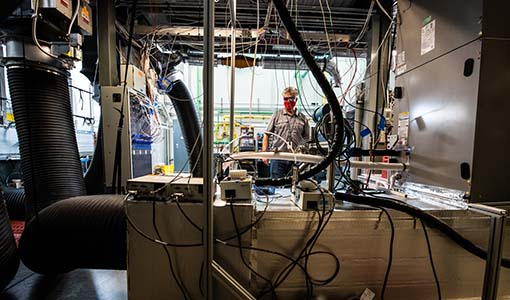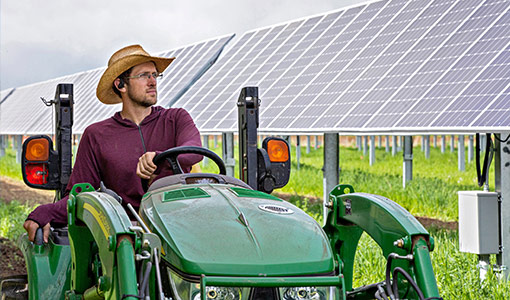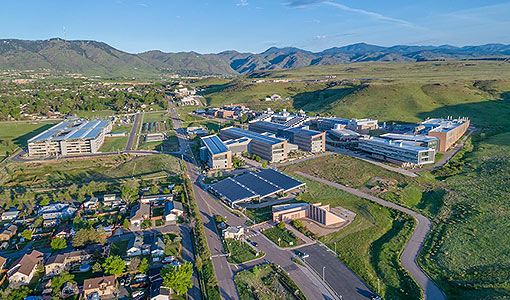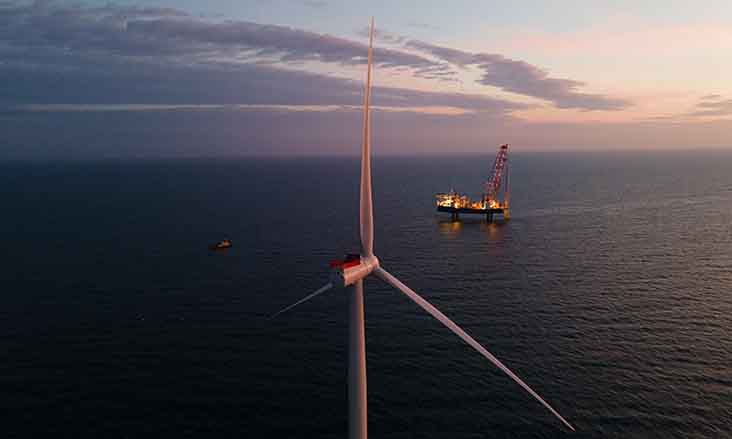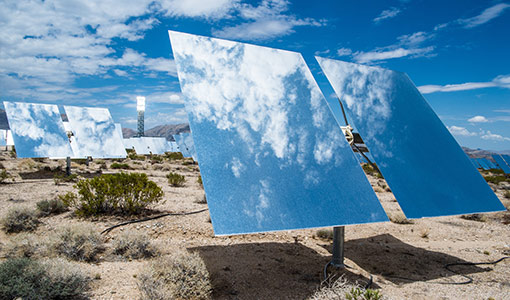January 2022
Advanced Air Mobility Takes Flight With New Partnership
The next frontier of mobility aims to ascend to new heights with on-demand air travel integrated with existing transit. This vision is backed by new research, which shows aerial mobility options are nearly ready for takeoff and poised to transform public transit in cities worldwide.
Reducing Wind Turbine Wakes Could Save Wind Farms Millions
Researchers are collecting the most comprehensive data on how winds move through wind plants to help design more efficient plants and reduce wind energy costs.
American Chemical Society Recognizes NREL Women at the Forefront of Energy Research
Since 2019, the American Chemical Society (ACS) has published an annual series, titled "Women Scientists at the Forefront of Energy Research," to celebrate the accomplishments of women in the energy science field.
Landmark Demonstration Shows How Common Wind Turbine Can Provide Fundamental Grid Stability
NREL uses advanced grid research environment for first-ever example of type-3 turbines using grid-forming controls.
Kentucky Community Partners With NREL To Meet 100% Clean Goals
The community of Louisville, Kentucky, is partnering with NREL to achieve a goal of 100% clean electricity for municipal government operations by 2030.
DOE Launches AlgaePrize for Student Innovators—Competition Will Culminate at NREL in Spring 2023
A new competition from the U.S. Department of Energy's Bioenergy Technologies Office encourages students to imagine and develop innovative technology solutions using algae as a potent and flexible energy resource.
Happy Hours: Energy Storage Could Support the Grid Every Hour of the Day, All Year Long
The latest phase of the Storage Futures Study finds the grid operates more efficiently with high levels of energy storage across all studied system configurations and grid mixes.
NREL Scientists Dive Into Data in Search of Answers
In NREL's Insight Center, models come to life, illuminating pathways to a clean energy future.
Aligning Utilities and Electric Vehicles, for the Greater Grid
A team at NREL completed a literature review on the potential value of electric vehicle (EV) managed charging. Findings provide a complete look at how EVs and the grid could work together as the electric and transportation sectors become intertwined.
REopt Goes Underground To Elevate Facility Energy Savings and Resilience
A new geothermal heat pump module enables the REopt web tool to evaluate individual facility energy, cost, and emissions impacts of converting conventional heating and cooling systems to ground-source heat pumps.
A Year in Review: Advancing Energy Storage and Conversion Research
Over the past year, NREL researchers have pioneered innovative, interdisciplinary, and integrated research and development for technology advancements in electrochemical, molecular, thermal, and mechanical energy storage systems.
Python Opens Up New Applications for EnergyPlus Building Energy Simulation
Buildings account for more than 40% of U.S. energy use and 70% of U.S. electricity use. Reducing that consumption and "shaping" it to match renewable generation requires us to design and operate buildings to be more efficient, flexible, and responsive. To do that, we must be able to better predict and model building energy use.
Understanding the Impact of Wind Conditions on Concentrating Solar Power Structures
High wind loads increase structural design costs of concentrating solar power collector structures, such as heliostats and parabolic troughs.
December 2021
Bringing Energy-Efficient Building Technologies Closer to Commercialization
DOE is accelerating emerging technologies from lab to market through its Technology Commercialization Fund (TCF). With an overarching goal to increase the number of commercialized energy technologies developed at national laboratories, the TCF Program awarded funding to support two NREL Buildings projects.
Top 20 NREL Stories of 2021
NREL researchers and staff reached countless goals and achieved numerous successes in science, partnerships, and technology commercialization in 2021. Here are just a few of the highlights.
Sakshi Mishra Named One of Forbes' 30 Under 30
NREL researcher Sakshi Mishra was named to the North America 2022 Forbes 30 Under 30 Energy List, part of an annual recognition of groups of 30 young professionals in areas such as health care, media, and science.
News Release: NREL Names Tina Herrera to Leadership Team as Chief Human Resources Officer
NREL has named Tina Herrera as chief human resources officer. Herrera will start with NREL on Jan. 3, 2022.
NREL Wind Energy Program Demonstrates Innovation and Leadership Throughout 2021
From advancing wind energy science, technologies, and materials to demonstrating thought leadership on a worldwide scale, NREL's Wind Energy Program played a powerful role in maximizing the impact of wind energy during 2021.
News Release: NREL Launches New International Consortium To Advance High-Tech Mirrors Used in Solar Plants
NREL, joined by our partners at Sandia National Laboratories and the Australian Solar Thermal Research Institute, announces the launch of the Heliostat Consortium (HelioCon), an international effort to drive down the cost of heliostats.
35 Teams Advance to Solar District Cup Finals
Today, the U.S. Department of Energy Solar District Cup Collegiate Design Competition announced that 35 teams from 39 schools are advancing as finalists in the Class of 2021–2022 program.
Last Updated May 28, 2025

